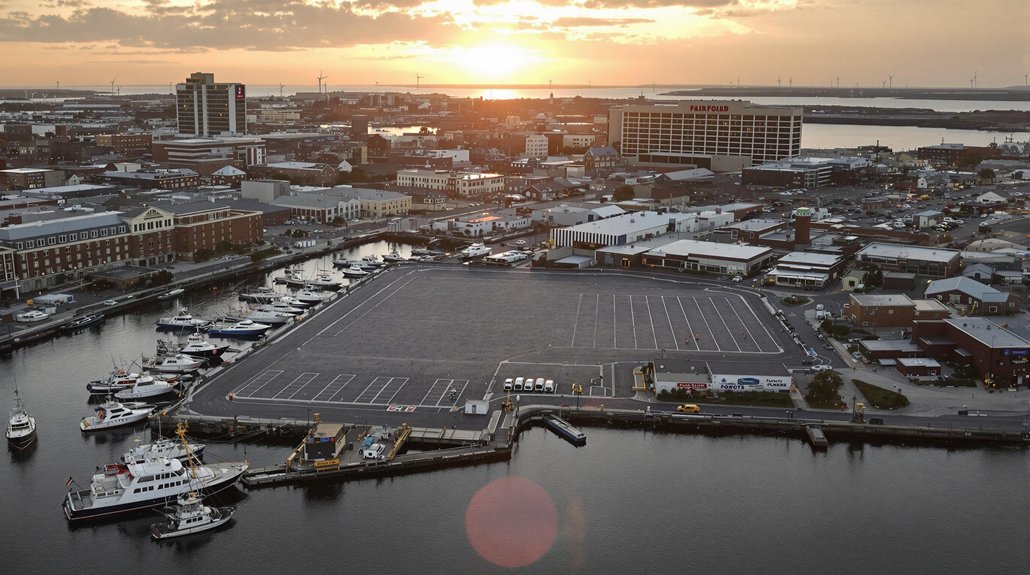A proposed $15 million renewable energy hub on New Bedford’s waterfront got the boot after fierce local opposition. City councilors and residents weren’t having it, arguing the project would mess with the working waterfront and fishing operations. Critics questioned why build new when empty buildings exist. The Massachusetts Clean Energy Center backed down but still aims to find another location in New Bedford. The $10 million in federal funds? Still up for grabs until 2026.
After months of controversy, the proposed $15 million renewable energy hub for New Bedford’s waterfront has been abandoned. The Massachusetts Clean Energy Center has suspended its pursuit of the city-owned parking lot between Merrill’s and Fairfield Inn, following significant pushback from city councilors and local property owners.
The project, which aimed to create a center focused on ocean-based alternative energy technology, hit a wall of opposition. City Councilor Morad didn’t mince words, stating the facility “has nothing to do with working waterfront” – a point that resonated with many locals concerned about congestion in an already busy fishing port.
It turns out not everyone wants a shiny new research center where fishing boats operate. Go figure.
Critics suggested several alternative locations that wouldn’t consume precious waterfront property. The former Star Store building and soon-to-be vacant Hastings Keith federal building topped the list of suggested alternatives. Why build new when empty buildings are collecting dust downtown? That was the question on many minds.
The economic impact promised jobs in the renewable energy sector, but skeptics weren’t buying it. Past offshore wind projects haven’t exactly delivered employment bonanzas for locals. Despite the renewable energy sector creating millions of jobs globally, local residents remain skeptical about their share of opportunities. The proposed center would have potentially accommodated two dozen startup companies and several industry partners looking to develop wind power technology. The debate quickly became about New Bedford’s soul – preserve the working waterfront or pivot to a clean energy future?
Mayor Jon Mitchell supported the waterfront location, but City Council opposition ultimately prevailed. The CEC has committed to finding another location in New Bedford, with the $10 million in federal ARPA funds still designated for the project.
They’ve got until the end of 2026 to spend that money. Clock’s ticking.
The controversy highlights tensions between state-driven development initiatives and local control over limited resources. Councilor Maria Giesta voiced strong opposition citing potential interference with fishing and fish processing operations in the area. While the renewable energy center remains in the works somewhere in New Bedford, its future location remains uncertain.
One thing’s clear: don’t mess with New Bedford’s waterfront without expecting a fight.








